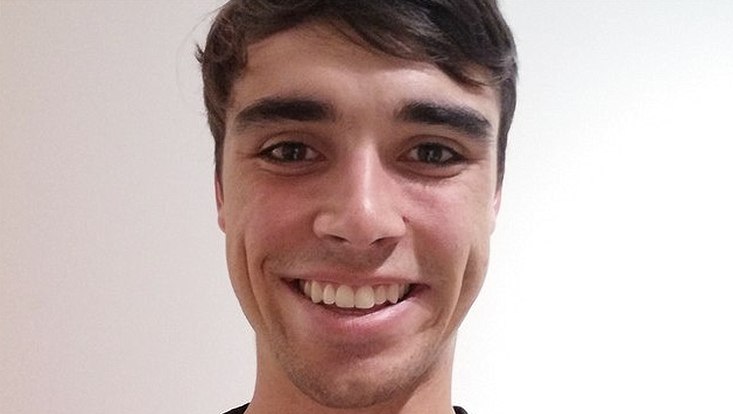Vincent Goumarre
14 October 2020

Photo: Vincent Goumarre
Vincent Goumarre is from a small village near Avignon in southern France. He graduated from the Institut d’Optique Graduate School (Université Paris-Saclay) and received a double degree with the KTH Royal Institute of Technology in Stockholm (Sweden) in particle physics. He did the research for his Master thesis at the theoretical physics department of the University of Oslo (Norway) on the computation of processes implying supersymmetric particles – hypothetical particles, candidate for dark matter – and their implementation in Pythia 8, a particle collision simulator.
What is the topic of your research?
I work in the ATLAS collaboration, one of the particle detectors at CERN, and my main supervisor is Sarah Heim. I have several projects going on, but my main field of study is the Zγ channel. The collision of protons in the LHC at CERN creates a bunch of particles. My work is to analyze the data in the case the outgoing particles are a Z-boson and a photon. From this data, we can for example try to find new processes involving particles that have not yet been discovered, which has been my task for the past year. We also collaborate with theorists to improve the particles model and simulations of particles behavior, for example in colliders, that we currently have.
What fascinates you about your research focus?
I love to acquire new knowledge. When I start a project, I am always amazed to learn about new models and methods to reach a goal. There are a lot of things that I don’t know in my field and the more I learn, the more I see that there is still a lot to learn about. Even during a project, it is hard to tell in advance what will be the main issues and the results. There is something exciting in the fact that we do not know what will be the exact outcome of our work.
What do you like about the cluster Quantum Universe?
I really enjoy the talks organized by the cluster, especially during the Quantum Universe Days. They help me to have a broader understanding of my work because I discover new experiments and research connected to mine. And I also stay up to date with other scientific subjects.
What do you like to do in your free time?
I like doing sport in general, especially climbing and skiing. Sadly, Hamburg doesn’t have enough mountains to do so. I also enjoy music, both for listening and playing. So far, I can only make a bunch of sounds, but I still hope that one day it will be nice to listen!
